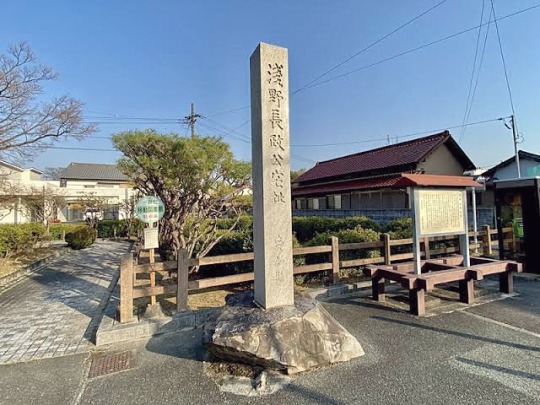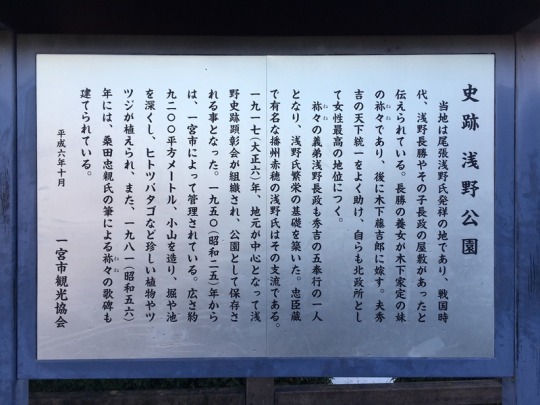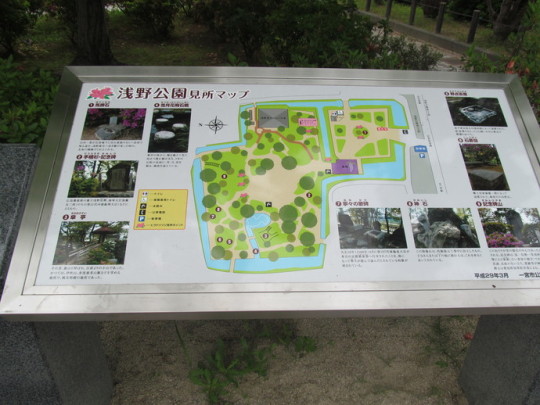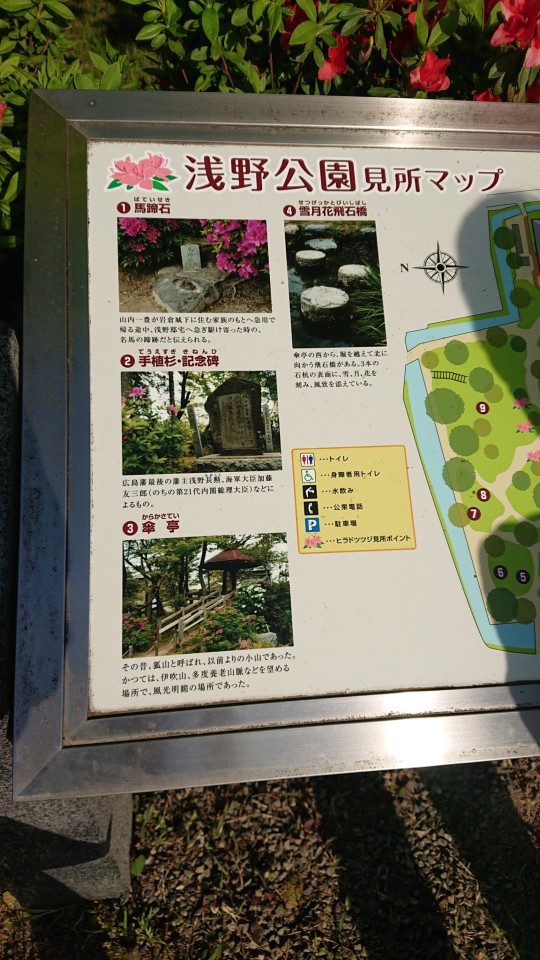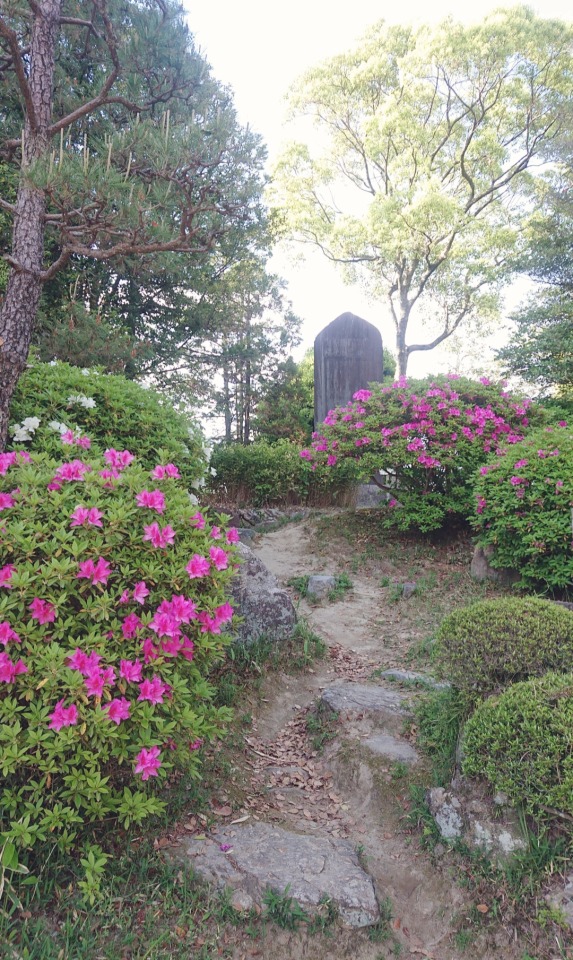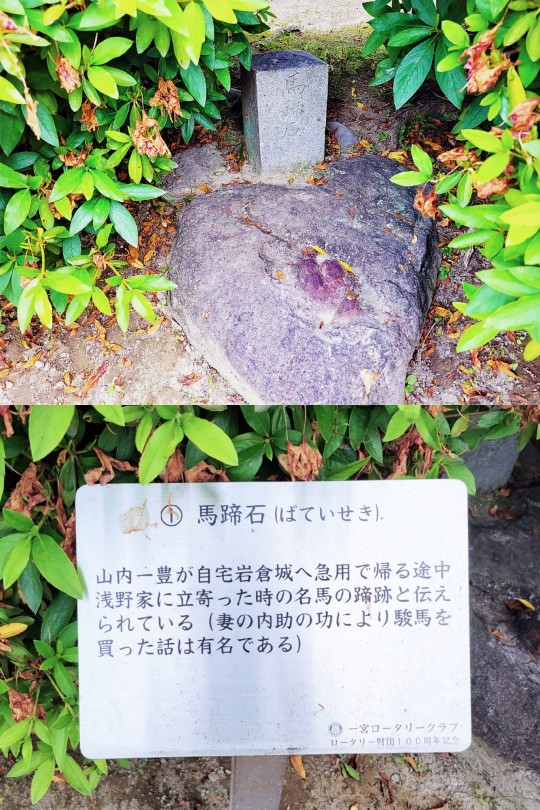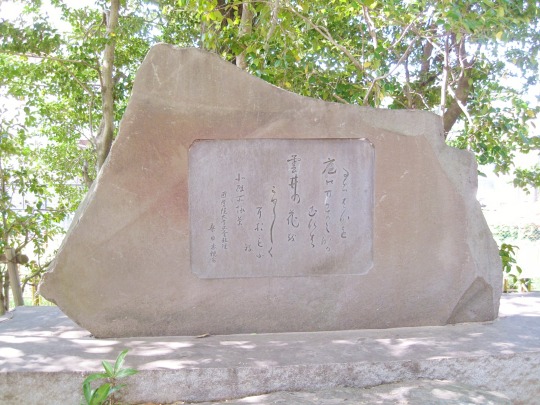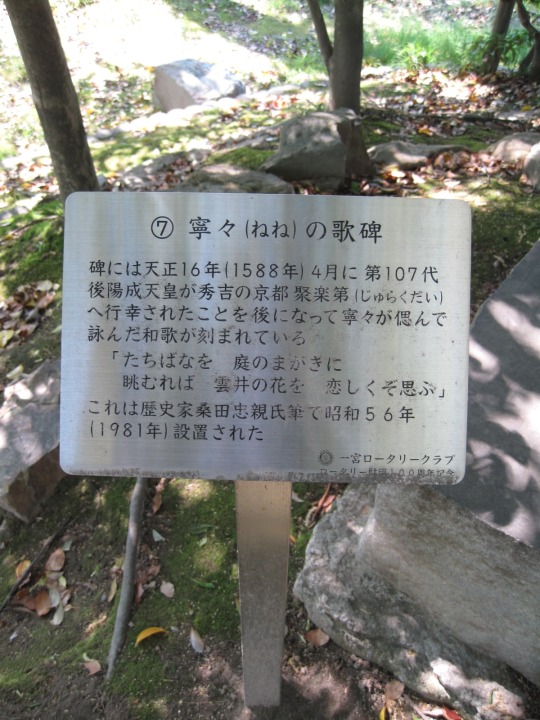#和歌
Photo
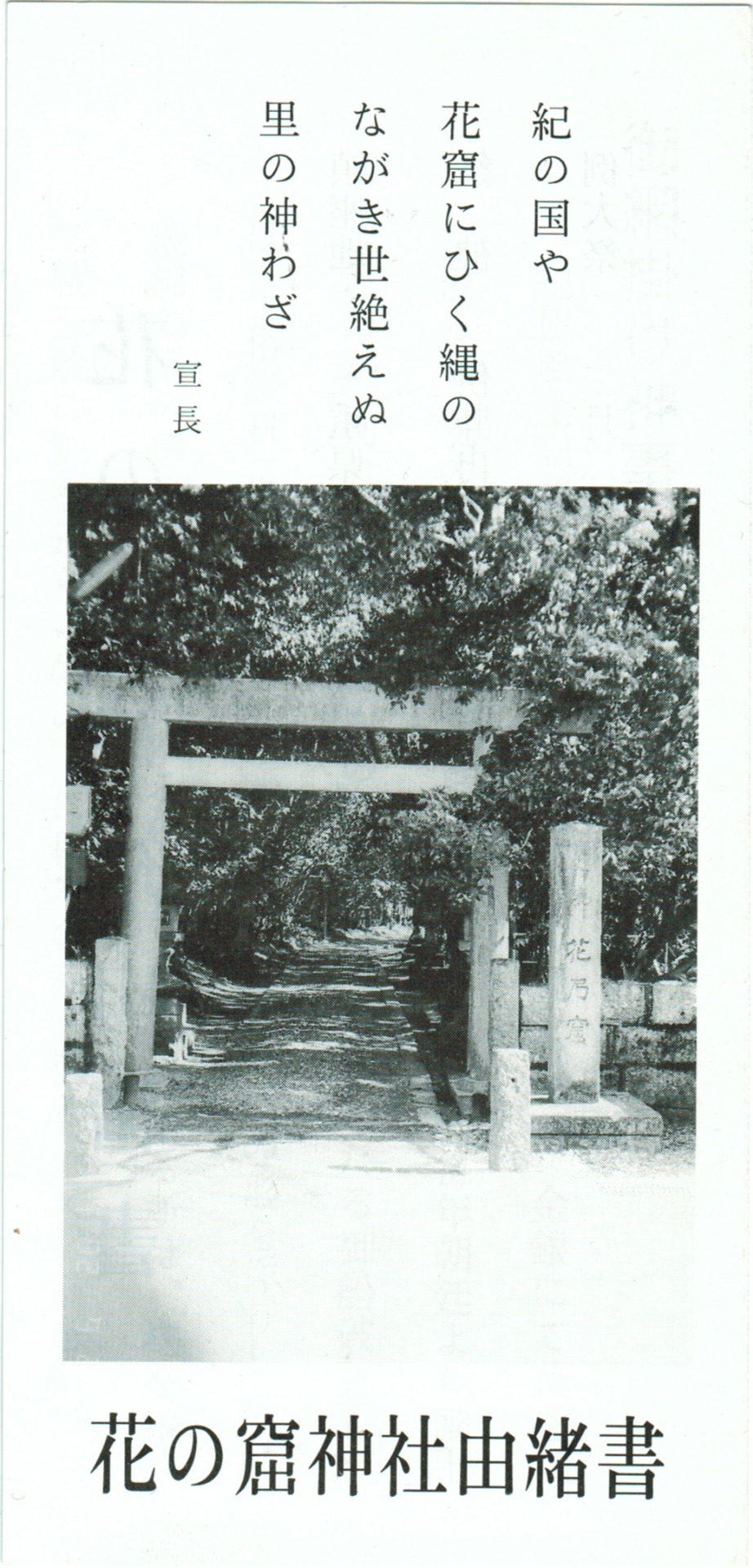
A pamphlet from Hana no Iwaya Jinja Shrine (花窟神社) in Kumano City, Mie Prefecture, referenced in the “Chronicles of Japan” (日本書紀) (compiled in 720) as the burial tomb of the progenitor goddess Izanami no Mikoto (伊邪那美命) after her demise giving birth to the fire deity, with the pamphlet featuring a shot of the front entrance of the shrine along with a waka poem by Motoori Norinaga (本居宣長) (1730-1801) which can be translated as:
Down in Kii Province,
A sacred rope drawn across
The flowery cave
For long ages without end,
A small town divine wonder
Acquired at the shrine April 2, 1995
#三重県#mie prefecture#熊野市#kumano#花窟神社#hana no iwaya#神社#jinja#鳥居#torii#japanese religion#japanese literature#japanese poetry#japanese poem#和歌#waka#本居宣長#motoori norinaga#pamphlet#ephemera#printed ephemera#paper ephemera#crazyfoxarchives
75 notes
·
View notes
Text
ライカといふ犬を思ひて天の川に仰ぎて読める
寝ぬる犬天の川にも戯れ泳ぐ
知りやはすらむ世の袖の月
This is the first waka (和歌) I have ever written, having read so many. I wrote this out of a need to figure out my feelings, after learning about Laika and her story for the first time. Here is, to my best efforts, a rough English translation, with a few translator's notes:
The sleeping dog
even in the river of heaven¹
Swims playfully
I wonder if she knows [about]
the moon in the sleeves² of all time³
1) lit. 'river of heaven' - milky way as visible in the night sky, esp. over autumn in Japan
2) this is a really weird expression but basically. sleeves are consistently a thing used for 1.) sleeping on, 2.) crying into in classical japanese poetry. so people cry into their sleeve. and thus an expression meaning like, a frozen sleeve became a thing, meaning that someone had been crying a bunch and also that it is cold, because they cried into the sleeve and the tears froze. this *then* lead to the expression of the moon (or moonlight) in one's sleeve, meaning that the moon is reflecting off the frozen sleeve. so basically it means one has been crying on a very cold night
3) This 世 has a sense of 'the past, present, and future each.'
4) Dog, to sleep, and to depart(respectfully, to die) are all homophones. Inu.
98 notes
·
View notes
Text
板津昇龍 Shoryu Itazu
詩人・歌人・俳人として、début !!
東風吹かば コロナの菌も グッドバイ
風見鶏 国家と君に 恋すてふ
以上、2作品を、かなり考えて、句にしました。
風見鶏ーーーーーーーーー の句は、非常に風刺的ですね。
因みに、東風は、「こち」と詠みます。
春から夏にかけて吹く東寄りの風。氷を解き、春を告げる風として、古来雅語として取り入れられてきました。雨を伴うことが多く、この風が吹くと寒さが緩むので一般には喜ばれますが、海上生活者には時化(しけ)になる風として警戒されました。東風は単独に使われるほか、次のようなさまざまな複合した名称としても使われています。
朝東風(あさごち)、雲雀東風(ひばりこち)(瀬戸内地方で3、4月ごろ吹く)、雨東風(あめこち)(九州の小倉(こくら)地方でいう)、いなだ東風(三重県志摩半島の白木(しらき)での呼称)、鰆ごち(さわらごち)(岡山県で春のサワラ漁のころに吹く)、青東風(夏、青空のもとで吹く)、星の入り東風(10月ごろ、おうし座のすばる星の沈む明け方に吹く)。
東風は春の季語として「梅ごち」「桜ごち」「正(まさ)東風」「春風」などがあります。
東風吹かば にほひをこせよ 梅の花 主なしとて 春をわするな
菅原��真
でも、有名ですよね!
恋すてふ 我が名はまだき 立ちにけり 人知れずこそ 思ひそめしか
これは誰の和歌でしょうか?
?
?
?
壬生忠見 (みぶのただみ) 三十六歌仙のひとり 百人一首の No. 41
読み方・現代仮名遣いは?
この歌の読み方は、「こいすちょう わがなはまだき たちにけり ひとしれずこそ おもいそめしか」となります。
意味・現代語訳は?
『恋すてふわが名はまだき立ちにけり人知れずこそ思ひそめしか』 の現代語訳は以下のようになります。
「恋しているという私の噂が早くも立ってしまったのだった。誰にも知られないように、心ひそかに思いはじめていたのに」
背景
百人一首No.40『しのぶれど色に出でにけりわが恋はものや思うと人の問うまで』で紹介した通り、平兼盛の『しのぶれど』と壬生忠美の『恋すてふ』は歌合で対決したもの同士。
この対決は後に様々な逸話を生み、鎌倉時代の『沙石集』には、負けた忠美が落胆のあまり食欲もなくなり、病になってついには亡くなってしまったという話が残されている程です。
『沙石集』の話は作り話臭が強いですが、当時の人々の歌に対する熱意が強かったことは事実なのではないでしょうか。
品詞分解は(表現技法は)?
①恋すてふ
恋す…サ行変格活用の終止形
てふ…連語、「てふ」というのは「という」のちぢまった形。「「恋をしている」という」という意味になります。
②わが名はまだき
わ…代名詞
が…格助詞
名…名詞
は…係助詞
まだき…副詞、「早くも」の意
③立ちにけり
立ち…タ行四段活用の連用形
に…完了の助動詞の連用形
けり…詠嘆の助動詞の終止形
④人知れずこそ
���…名詞
知れ…ラ行下二段活用の未然形
ず…打消しの助動詞の連用形
こそ…係助詞、係り結びで一番最後の「しか」が已然形になっています
⑤思ひそめしか(倒置法)
思ひそめ…マ行下二段活用の連用形
しか…過去の助動詞「き」の已然形、係り結びを受けて已然形になっています
意味的には「誰にも知られないように恋していたのに、噂がたってしまった」となり、④⑤→①②③の順番となるので、ここでは倒置法が使われていることになります。
参考文献
この記事は『シグマベスト 原色百人一首』(鈴木日出夫・山口慎一・依田泰)を参考にしています。
17 notes
·
View notes
Text
古畑のそばの立つ木にゐる鳩の友呼ぶ声のすごき夕暮れ
On a tree standing
by the cliff in an old farm
a dove...
How lonely its voice
calling for a friend this evening!
by Saigyō, "Sankashū [no.997]", (translated by Makoto Ueda)
0 notes
Text

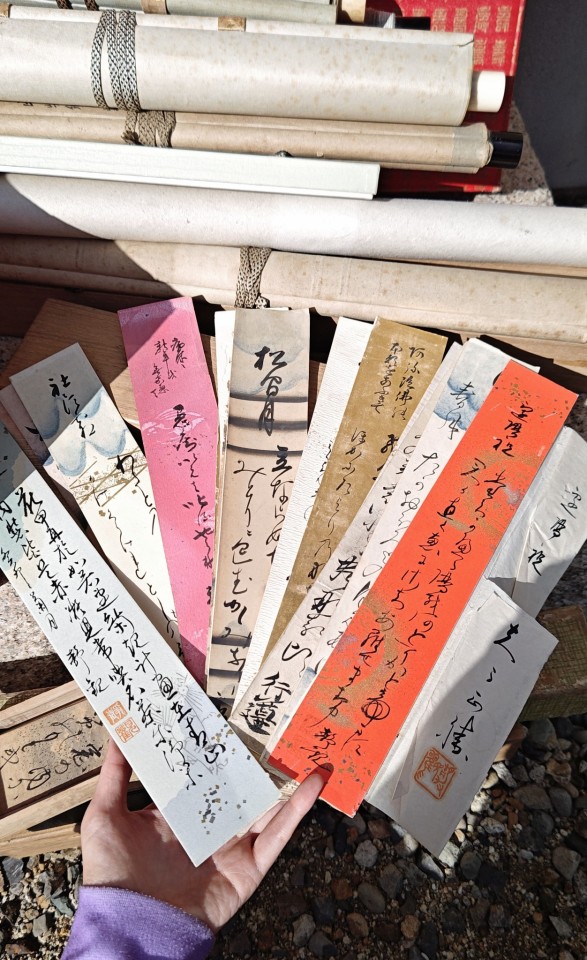

立雛の掛け軸を取り替えようと、掛け軸BOXを探してたら、書ばかりで、お雛様みたいな可愛い掛け軸はあんまり無かった😮💨
この和歌は 加茂季鷹 🌸が詠んだ和歌の一部みたい〽
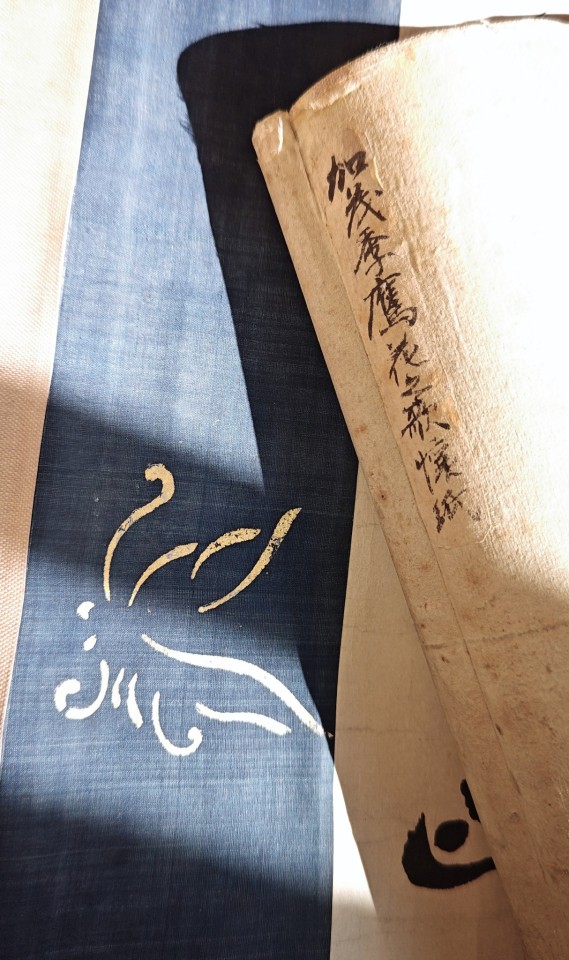
加茂季鷹 花之歌🦋
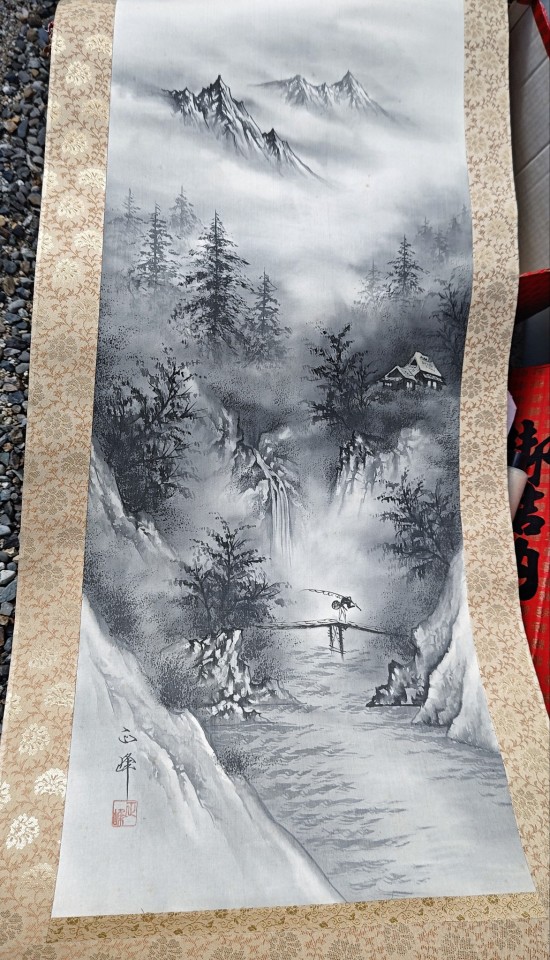
峰の水墨画も癒やされるけど、思いっきり和室にしか合わなそうなので、中国の鬼よりも強く魔除けの効果もあるらしい鍾馗🧌という神をお部屋に飾ってみました😛
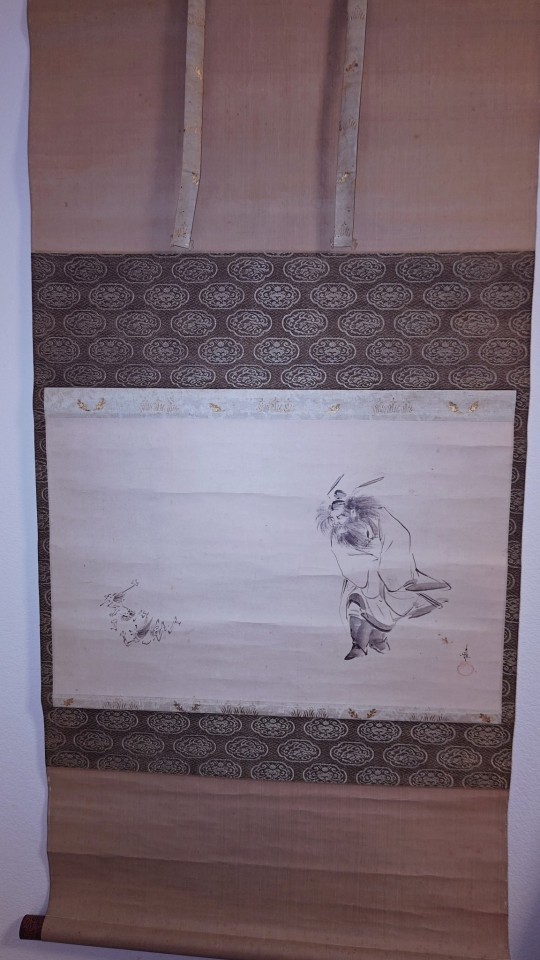
このしょうき様に降りかかる災いを跳ね返してもらいます👹
森高雅 もり-こうが 1791-1864 江戸時代後期の画家
寛政3年生まれ。尾張(おわり)名古屋の人。吉川一渓,中林竹洞,牧墨僊(ぼくせん)にまなぶ。浮世絵風の風俗画を得意とし,門人がおおかった。のち土佐派もまなぶ。元治(げんじ)元年5月4日死去。74歳。通称は右門,蜂助。号は玉僊,蝦翁など。
たかまさなの?
こうがなの?
もりたかみやび ではない🤭
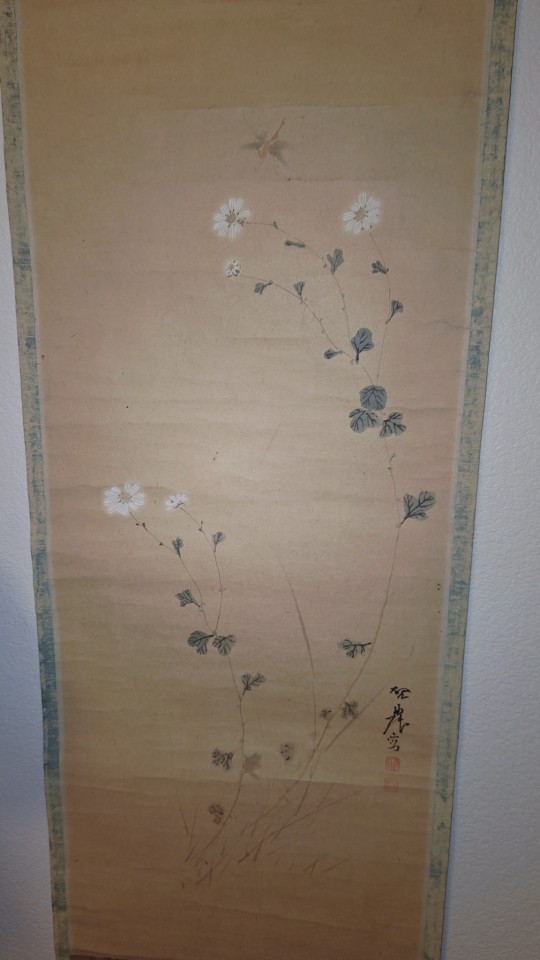
鍾馗🧌は、端午の節句に掛け軸や旗、屏風、に描いたり、鍾馗像を瓦屋根に飾ったり、厄除けとして奉納したりする風習があったようなので、鍾馗図は季節的に5月頃に飾ることにして、秋バージョンは蜻蛉にしようと思ってます🍂
古すぎて折れ線が付きまくってるんだが、シミもあるしクリーニングできないかね?
やっぱり着物でも掛け軸でも仕舞い込んだままじゃ息苦しいわよね、空気に触れさせて飾ってこそ味がでるのよ🤟
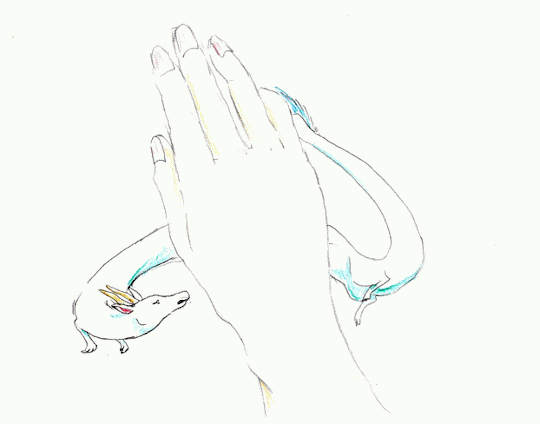
#鍾馗#渓谷#峰#玄宗皇帝#鍾馗大神#中国唐#水墨画#和歌#邪気除け#短歌#掛け軸#掛軸#屏風#瓦屋根#瓦#蜻蛉#蜉蝣#森高雅#浄土真宗#句仏上人#真宗大谷派#大谷光演#短冊#疱瘡除け#夢枕#古今和歌集#百人一首#賀茂季鷹#雲錦翁家集#古美術
0 notes
Text
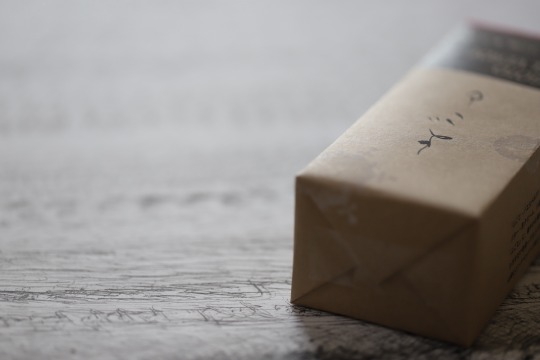
松屋銀座Ginza Valentine Worldにて。
引網香月堂さんの「よごと」ノエルベルデ
バター生クリーム小麦粉も使わない和の焼菓子「よごと」に華やかな風味のノエルベルデのカカオだけ使って仕上げた特別な一品。山椒とピンクペッパーが新しい調和を生み出す。
とのこと。
よごと の由来はこちらの一首より。
新しき年の始めの初春の今日降る雪のいや重け吉事
0 notes
Text
“色見えで移ろふものは世の中の人の心の花にぞありける”
(「風姿花伝・花鏡」・p89)
『古今和歌集』巻十五。小野小町の歌
もっと色即是空とか元型的認識を表現した歌かと思ったら恋の歌だった。
(「古今和歌集・岩波文庫」・p185)
0 notes
Text
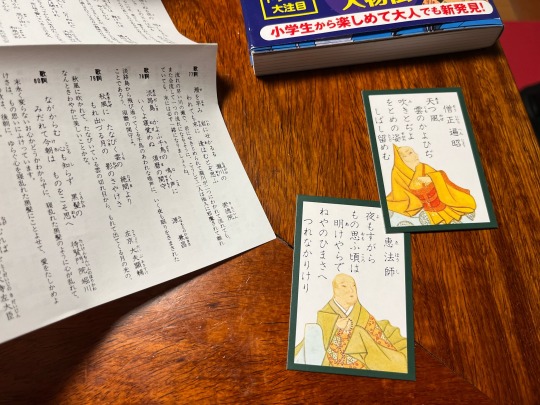
昔から、百人一首のファンなんだけど、日本語で覚えていない。でも、最近競技カルタに関係しているので、やっと頑張るようにしました。最初の踏みば一番難しかったけど、先週から、10首も覚えてきました。
I’ve been a fan of the Hyakunin Isshu poetry anthology for a long time, but I never memorized the verses in Japanese. However, lately, I’ve been inspired by Karuta competitions to finally learn it. The first step is the hardest (and scariest), but already after 1 week, I’ve memorized 10 poems out of 100.
0 notes
Text

Nachi Falls - Wakayama, Japan
1K notes
·
View notes
Photo
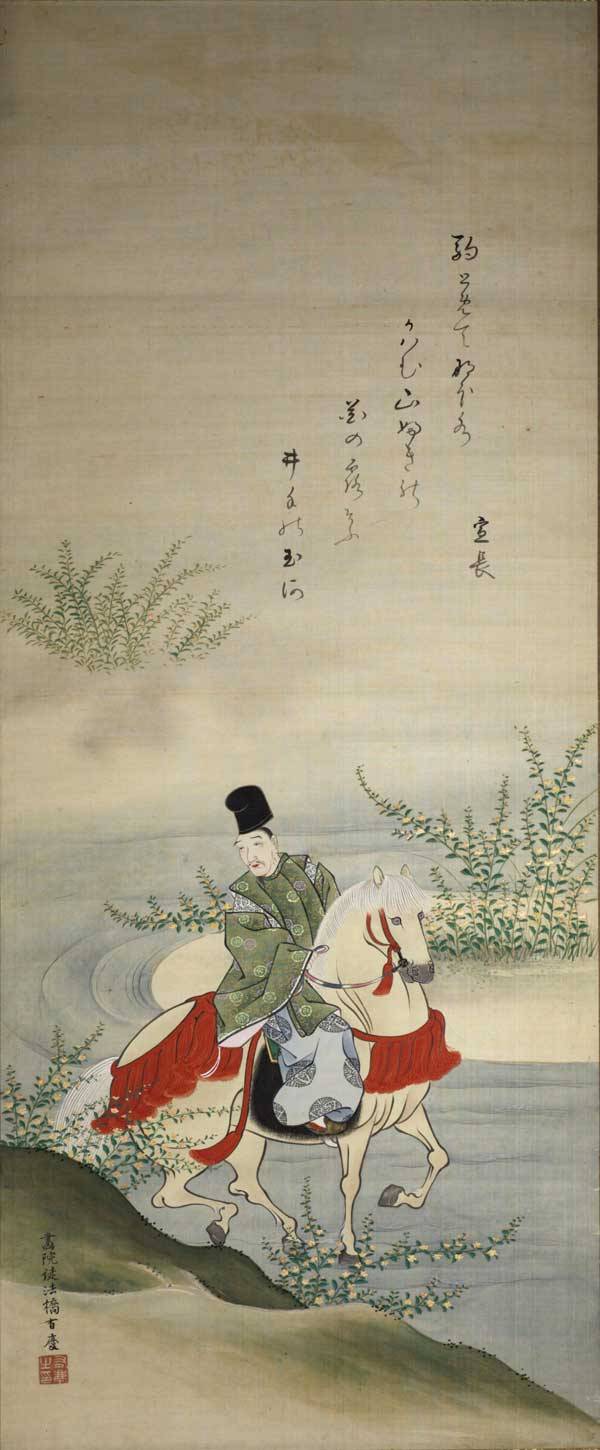
“The Tamagawa River in Ide” (井出の玉川図): A hanging scroll by the Kyoto artist Miyawaki Yūkei (宮脇有景) (dates unknown, active late Edo period) depicting the poet Fujiwara Shunzei (藤原俊成) (1114-1204), with Shunzei’s poem inscribed above with calligraphy by the nativist scholar Motoori Norinaga (本居宣長) (1730-1801):
Halting my horse
I water him again
Where the dew of the yamabuki
Mingles with the river-
The Jewel River of Ide
From the collection of the Motoori Norinaga Commemorative Museum (本居宣長記念館) in Matsusaka, Mie Prefecture (image from the museum’s official website)
#japanese art#宮脇有景#miyawaki yukei#japanese literature#Japanese poetry#和歌#waka#japanese poem#藤原俊成#fujiwara shunzei#fujiwara toshinari#japanese calligraphy#本居宣長#motoori norinaga
35 notes
·
View notes
Text
百人一首, poem 3: 柿本人麿
Day 3 of this little challenge! Today's poem is by Kakinomoto no Hitomaro (柿本人麿), from the same text, same manuscript, same transcription conventions.
阿し飛起農やま鳥[とり]の尾[を]のし多里を能
な可な可し夜[よ]越ひとり可もね无
In modern standard kana, and split into the 5 lines of the waka:
あしびきの
やま鳥[とり]の尾[を]の
したりをの
ながながし夜[よ]を
ひとりかもねむ
A parse/analysis: (again, if anyone has *any* ideas as to how I could make these more accessible, I'm willing to do it. I have no idea how to alt text these.)
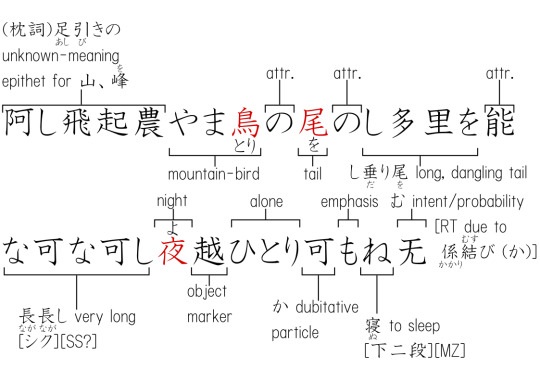
And a rough translation:
Must I sleep this night, ever so long as the dangling tail of that bird of the foot-pulling* mountains, alone?
*this is my best attempt at interpreting the 枕詞, 足引きの, based on its component parts, 足[あし] 'foot' and 引き 'pulling, tugging' (noun).
Again, I probably missed a lot of meaning, but that’s what practice and learning is for! This is a reminder that I’m no expert, I am but a lowly student, and this post is probably replete with errors despite my best efforts.
11 notes
·
View notes
Text
久しぶりの恵びす温泉
先日、横浜中華街近くの銭湯「恵びす温泉」に行きました。かなり久しぶりに。


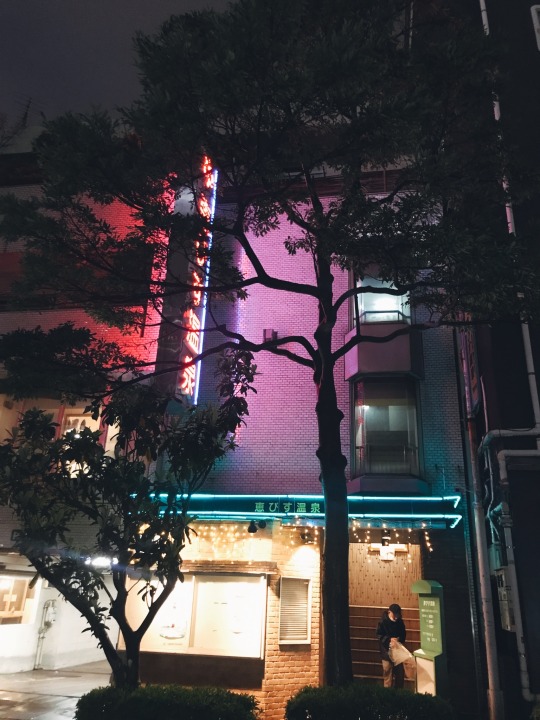

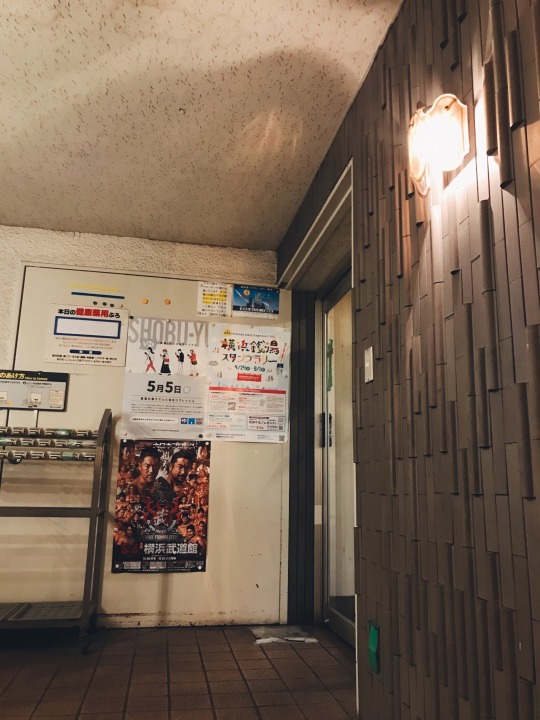

昔ながらの銭湯ですが、少し高級感ある設備です。
ここみると、雰囲気がよくわかります。
動画もあります。
youtube
受付では、ジャズや昭和歌謡が流れてます。
先日は山口百恵の「イミテイション・ゴールド」が流れてました!
隣にはコインランドリーがあって(使ったことないけど)、この雰囲気も好き。

住んでいた頃によく通っていた道です。
「恵びす温泉」には、何回か行ってました。
お客さん同士で仲がいいし、横浜マラソンの練習で走っている団体が利用していたりで、コロナ前はもっと賑やかでした。
懐かしいです。
カナリヤ響子
57 notes
·
View notes
Text
i don't even remember käärijä didn't win eurovision most of the time, he's only ever a voittaja in my mind. winner of the public vote, winner of our hearts, winner of the mtv ema, winner of the eurovision awards... just my winner 🩷🩷🩷

115 notes
·
View notes



